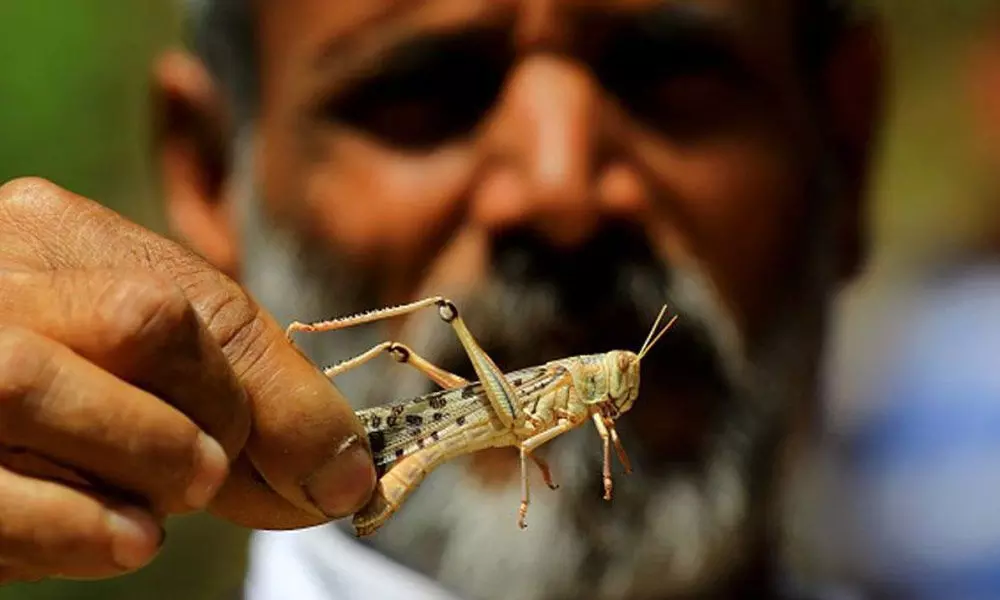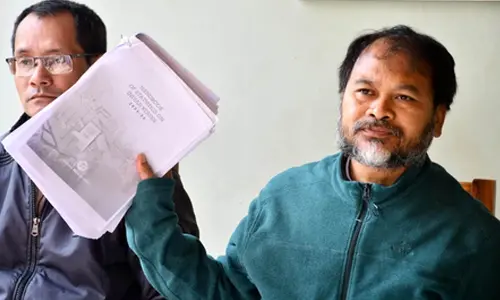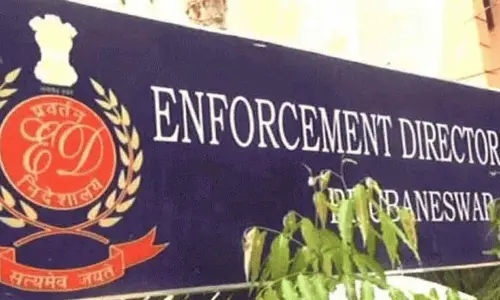Locust attack poses serious risk to food security in India
 Locust
LocustThe Food and Agriculture Organisation (FAO) of the United Nations in a recent report has warned of a potentially serious food security crisis this year in several regional countries, including India due to locust attacks
The Food and Agriculture Organisation (FAO) of the United Nations in a recent report has warned of a potentially serious food security crisis this year in several regional countries, including India due to locust attacks. Locusts, which stared swarming in from Pakistan border on April 11, have crossed the Thar desert and affected 16 of the 33 districts in Rajasthan.
The locust swarms have travelled far in search of food because the Rabi crop has been harvested in the field en route highlights migration pattern of desert locusts in South West Asia, its current invasion in different countries, potential impact on India's agricultural economy as well as the ongoing efforts of India's government to contain the pest and the emerging scenario.
According to the report, Rajasthan and Gujarat in the Eastern Region are especially prone as locust breeding is taking place in these areas, also due to the wet winter this year.
"In India, 38 per cent of the area (60 pc in Gujarat, 25 pc in Rajasthan and 15 pc in Punjab) are breeding grounds for the desert locusts, whereas the entire country is under the threat of invasion if the desert locust is not contained in the breeding regions," it says.
The FAO report highlights migration pattern of locust and its potential impact on agricultural economy. The report shows that swarms of locusts would be migrating to India in
the coming weeks/months from Pakistan border areas of Iran-Balochistan, Oman and East Africa.
The current situation in East Africa, the report says, remains extremely alarming as yet another generation of breeding has occurred with more swarms forming and maturing in northern and central Kenya, southern Ethiopia and probably in Somalia.
This represents an unprecedented threat to food security and livelihoods because it coincides with the beginning of long rains and the planting season.
"As it is now the beginning of the seasonal rainy period, another generation of breeding will take place that is expected to cause a dramatic increase in locust numbers in East Africa. Locusts will also increase in eastern Yemen and southern Iran in the coming months.
"Consequently, there is potential for a serious invasion to occur (in Northern India) at the beginning of the summer this year by swarms migrating from the Horn of Africa and from Iran," the report says.
Damage scenarios have been estimated for India in case control operations are not fully effective in areas where major Rabi crops like wheat, chickpea and oilseeds could be severely damaged in the short term.
It has been estimated that the losses to agriculture in case of a locust invasion can reach about Rs 205 billion, considering a 15 pc damage level for the production of wheat, gram and potato only.
At 25 pc damage level, the total potential losses are estimated to be about Rs 353 billion for Rabi crops and about Rs 464 billion for Kharif crops. Rajasthan State Agriculture Minister Lalchand Kataria described the locust attack as the biggest threat in the middle of lockdown at an official meeting Jaipur on Wednesday. 45 vehicle and sprayers had been provided.
"In the midst of additional impacts by Covid-19 on health, livelihoods and food security and nutrition of the most vulnerable communities and populations of India, it is imperative to contain and control successfully the desert locust infestation," the report suggests.
According to the report, the last serious desert locust invasion in the eastern region occurred in 1993. Beginning in mid-2018, some 25 years later, a major upsurge of desert locust developed in the Arabian Peninsula as a result of two cyclones that brought heavy rains to the Empty Quarter along the borders of Saudi Arabia, Oman and Yemen.
"This resulted in three generations of breeding and an 8,000-fold increase in locust numbers from mid-2018 to early 2019 in an area where survey and control activities could not be conducted due to extreme remoteness of the area."
Focusing on India, the report says that spring breeding will continue in the next few weeks in the coastal and interior areas of Rajasthan and an increasing number of hoppers will become adults and form groups as well as perhaps a few small swarms. The locust swarms have reached Sikar, Bundi, Bhilwara, Pratapghar and Chittorgarh districts. No major presence of locust in Panjab, however, was noted at the time the report was prepared.
Towards the end of May, populations will begin to move from the spring breeding areas in Rajasthan and adjacent areas of Gujarat, Maharashtra, MP and Punjab to the summer breeding areas along both sides of the Indo-Pakistan border. This movement will continue throughout June.
"As a result, swarms that are not detected or treated in the spring areas are likely to cross the Indus Valley and reach the desert areas in time for the start of the monsoon rains.
"This year the situation is aggravated as for the first time in many decades, there is a second threat of invasion by swarms in East Africa in late June and during July," the report says.
(The author is a progressive farmer from Kannaram village in Warangal Urban district in Telangana State)














